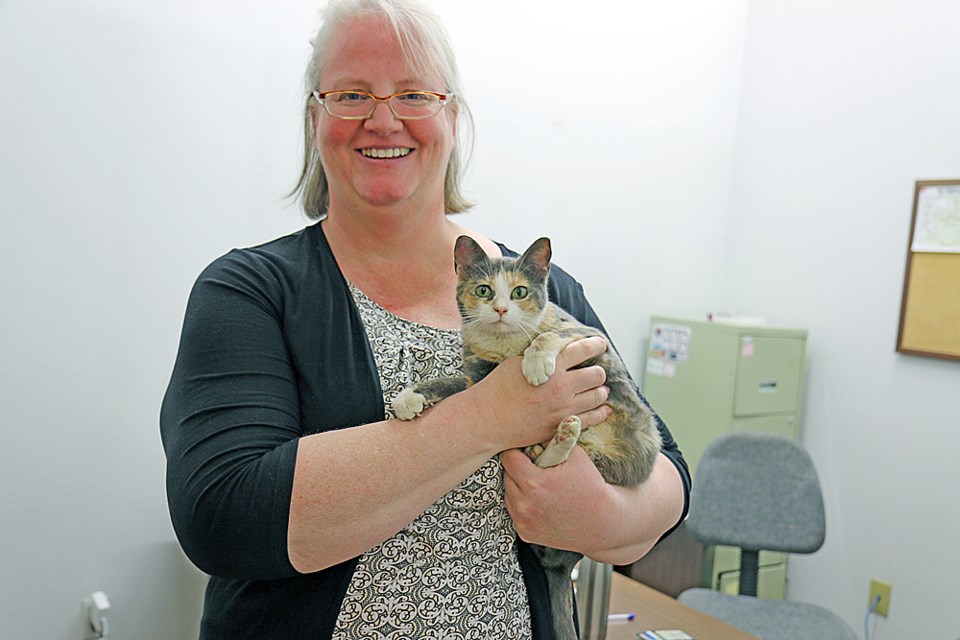When Valerie Durnin, the Review's publisher, commuted from Humboldt to Tisdale last week, she brought along an unexpected passenger – a cat who slept in the engine for warmth.
The cat was shaken up, but not harmed physically.
Dr. Karen Sigfrid, a veterinarian with the Northeast Veterinary Services, said it’s common for cats to seek warm engines in the winter, especially when there’s a sudden drop in temperature or a large stray population.
“What can happen is they’ll crawl up in the engine and they could die or get injured badly from fan belts or moving parts of a vehicle, or they can get displaced, so they can fall out on the road.”
The vet said it’s hard to know for sure if one of her patients has been harmed by sleeping within a vehicle, it’s something they strongly suspect when a cat comes in with injuries like certain types of skin rubs or paw injuries.
“People should try to prevent it and the biggest way to prevent it is if you provide the cat with their basic needs,” she said. “They have a nice, warm place to live with food, lots of room and a heat source, they’re probably less likely to crawl into a vehicle and risk getting displaced or injured.”
Banging on the hood before leaving might not work, as the cat might decide to stay put and hide instead. If the vehicle’s in a farmyard and there’s cats nearby, Sigfrid suggests honking the horn.
That said, it can be hard sometimes to detect a cat in the car before it’s too late.
“I know it happened to me too. I went to a farm and came home with a stray kitten that crawled up into my engine,” Sigfrid said. “I didn’t see the cat go near my vehicle and I wasn’t worried about it and I came home with another cat.”
The vet said her clinic also receives calls from local businesses of cats that have appeared from nowhere asking if she knows whose cat it is.
As for those that discover an unexpected passenger, Sigfrid said it depends on where you find it. In Tisdale, the cat can be dropped off at the pound.
“If it’s in the rural areas or really small communities, a lot of times the onus falls on the good-hearted people that find the cat.”
For those covered by a SPCA shelter – nowhere in the Northeast at this point – the passenger can be dropped there.
People could also phone Animal Protection Services for advice at 306-382-0002, Toll Free 1-844-382-0002.
Sigfrid said cat owners need to be careful when it’s cold outside, as it’s easy for cats to get frostbite on the tips of the ears, tails and paws. She added that she recently had to amputate the tips of the ears of three cats, and the tail of one cat.
“When it’s cold, do not let your indoor cats outside,” she said. “Don’t let them out when it’s cold at all because every year I get a couple of people where their cat asked to go out and they let it out and they freeze their feet or ears because they’re not acclimatized to that weather and it does not take long for their ear tips to freeze or their feet to freeze.”
The vet added that owners of dogs should also pay extra attention when it’s cold outside.




